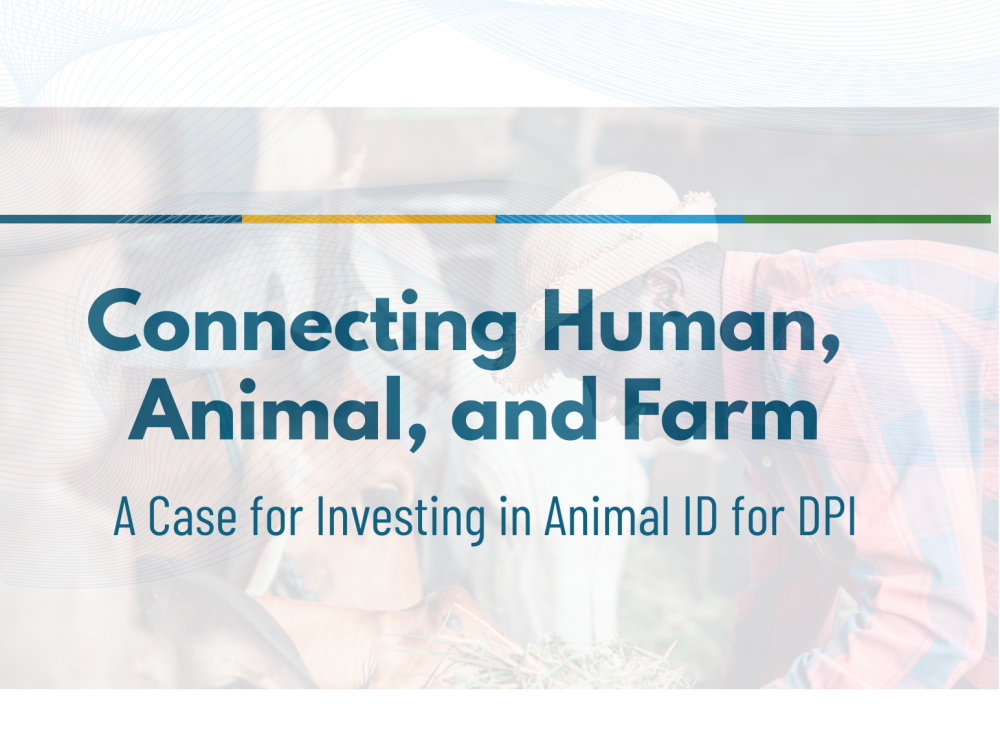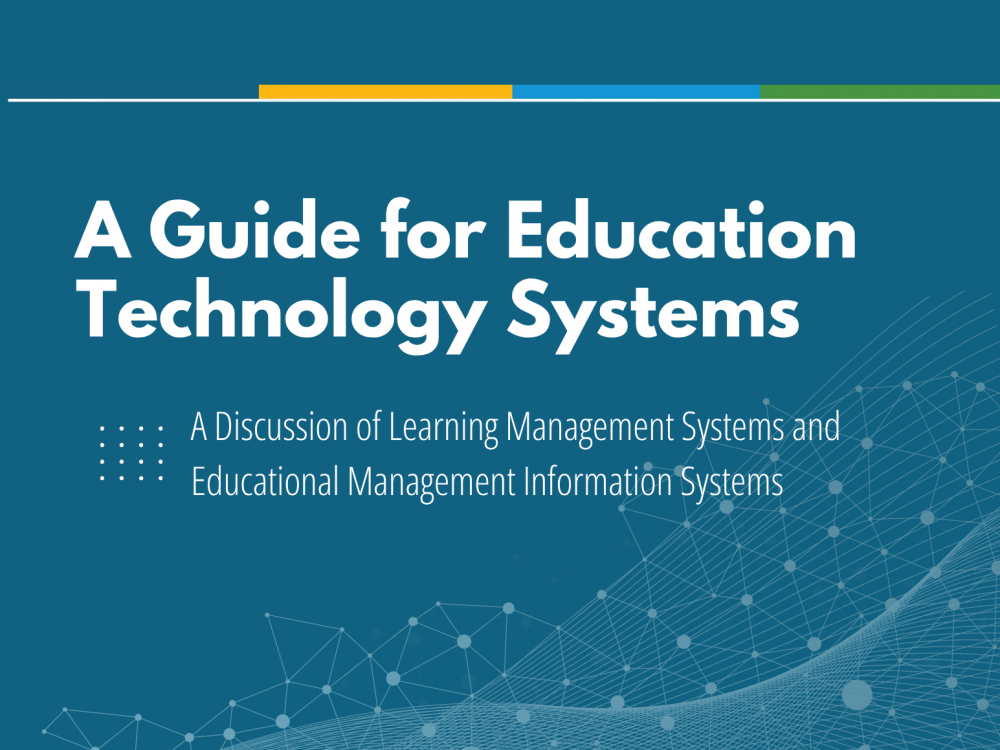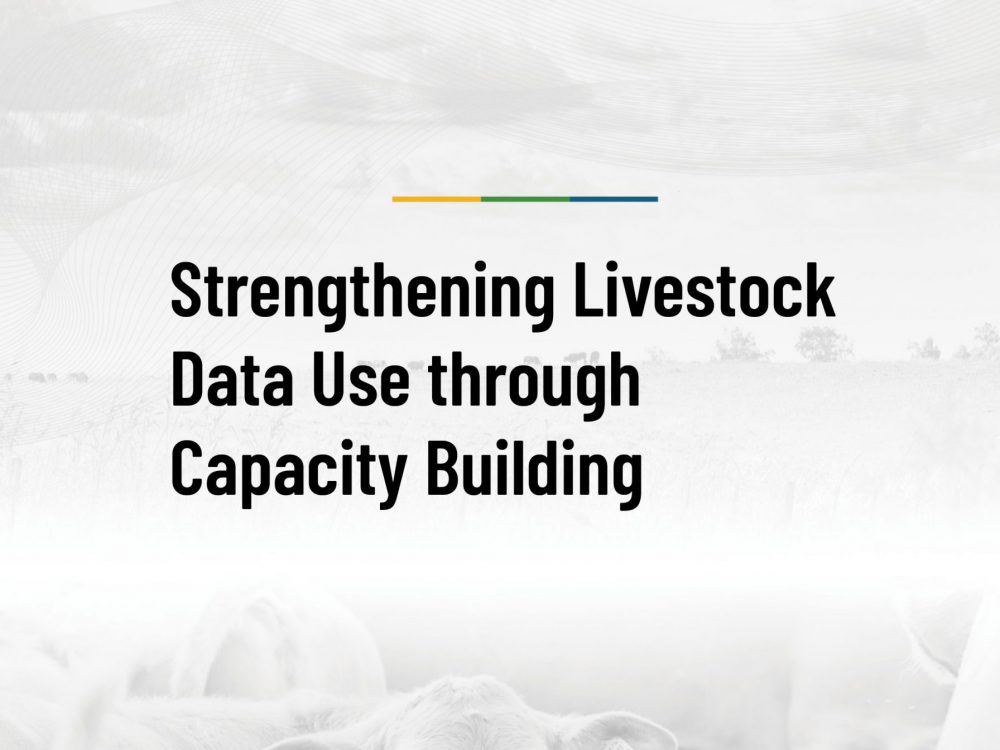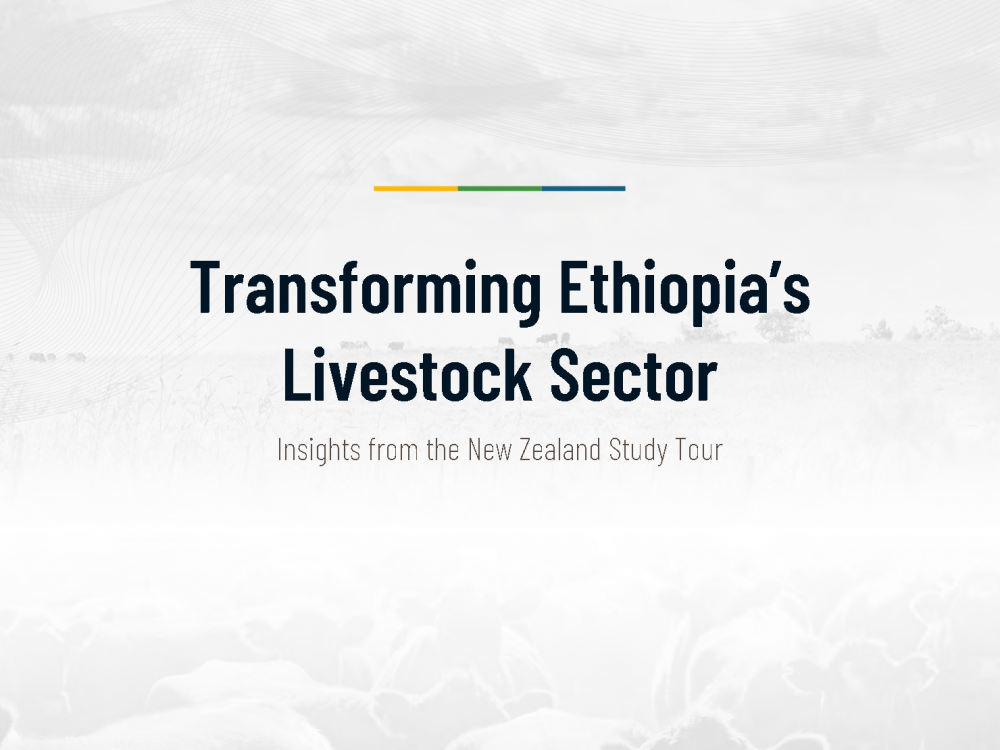
Communicating and sharing our work
DG’s publication library includes resources, reports, white papers, policy briefs based on our data landscaping work, and more.
Written to be useful and usable, our publications are where we share learnings on barriers and incentives to data use, explore new ideas, and contribute to data policy and strategy conversations.

Connecting Human, Animal, and Farm: A Case for Investing in Animal ID for DPI
Digital Public Infrastructure for agriculture has gained traction, yet animal identification remains under-integrated. This policy brief explores how linking farmer and animal IDs with national data and payment systems can unlock benefits across trade, finance, public health, and governance.

A Guide for Education Technology Systems
Education is at a crossroads, with 250 million children out of school and many more not learning as they should. This paper explores how Education Management Information Systems (EMIS) and Learning Management Systems (LMS) can, together, strengthen education outcomes.

Strengthening Livestock Data Use through Capacity Building
The aLIVE project launched a structured data-use training in 2023 to equip managers of five key livestock systems with practical skills in handling, processing, and visualizing data. This report shares the outcomes, including hands-on use of tools like Excel and Power BI, and offers recommendations to build on this progress.

Transforming Ethiopia’s Livestock Sector: Lessons from New Zealand
This policy brief captures lessons from the New Zealand livestock study tour and their relevance for Ethiopia. Aimed at policymakers, system managers, and partners, it highlights how data, institutions, and producers can align for stronger livestock systems, building on ongoing efforts under the aLIVE program.

Explaining Carbon Markets
This brief introduces carbon markets to those in sustainable development, anti-corruption, and civic tech. It unpacks their political context, operational procedures, and the core principles needed to build digitally enabled, high-integrity systems.

Demystifying Interoperability
This paper discusses, in practical terms, what goes into implementing interoperable solutions in partnership with public administrations. Based on 20+ years of DG’s experience, the paper demystifies key components needed to build robust, resilient, and interoperable data systems, focusing on the “how” of data standardization, data governance, and implementing technical infrastructure.

Evidence-Informed Policymaking: Education Data-Driven Decision Mapping in Kenya and Senegal
Development Gateway: An IREX Venture (DG) and our strategic partner IREX, supported by the William & Flora Hewlett Foundation, conducted a study of the education data systems in Kenya and Senegal. In our findings from this study, we underscore the necessity of a harmonized approach to education data management and share insights that provide a valuable roadmap for future reforms and investments in education data systems.

Tracking Climate Finance in Africa: Political and Technical Insights on Building Sustainable Digital Public Goods
In order to combat the effects of climate change, financing is needed to fund effective climate fighting strategies. Our white paper explores the importance of climate finance tracking, common barriers to establishing climate finance tracking systems, and five insights on developing climate finance tracking systems.

Ethiopia’s National Livestock Data Standard
In early 2024, the "a Livestock Information Vision Ethiopia" (aLIVE) governing committee endorsed a comprehensive set of standards to guide the collection, storage, and maintenance of livestock data in Ethiopia (i.e., a data standard). The data standard specifically focuses on standardizing data on cattle, sheep, goats, and camels in the country. The National Livestock Data Standard document contains standardized data sets for national animal data recording, animal disease, diagnosis, treatment, vaccination recording, animal events recording, location, and other additional attributes.

Custom Assessment Landscape Methodology 2.0
Our new white paper re-introduces our flagship methodology, Custom Assessment Landscape Methodology (CALM), to help our partners, collaborators, and teammates better engage with a flexible and adaptive assessment methodology.